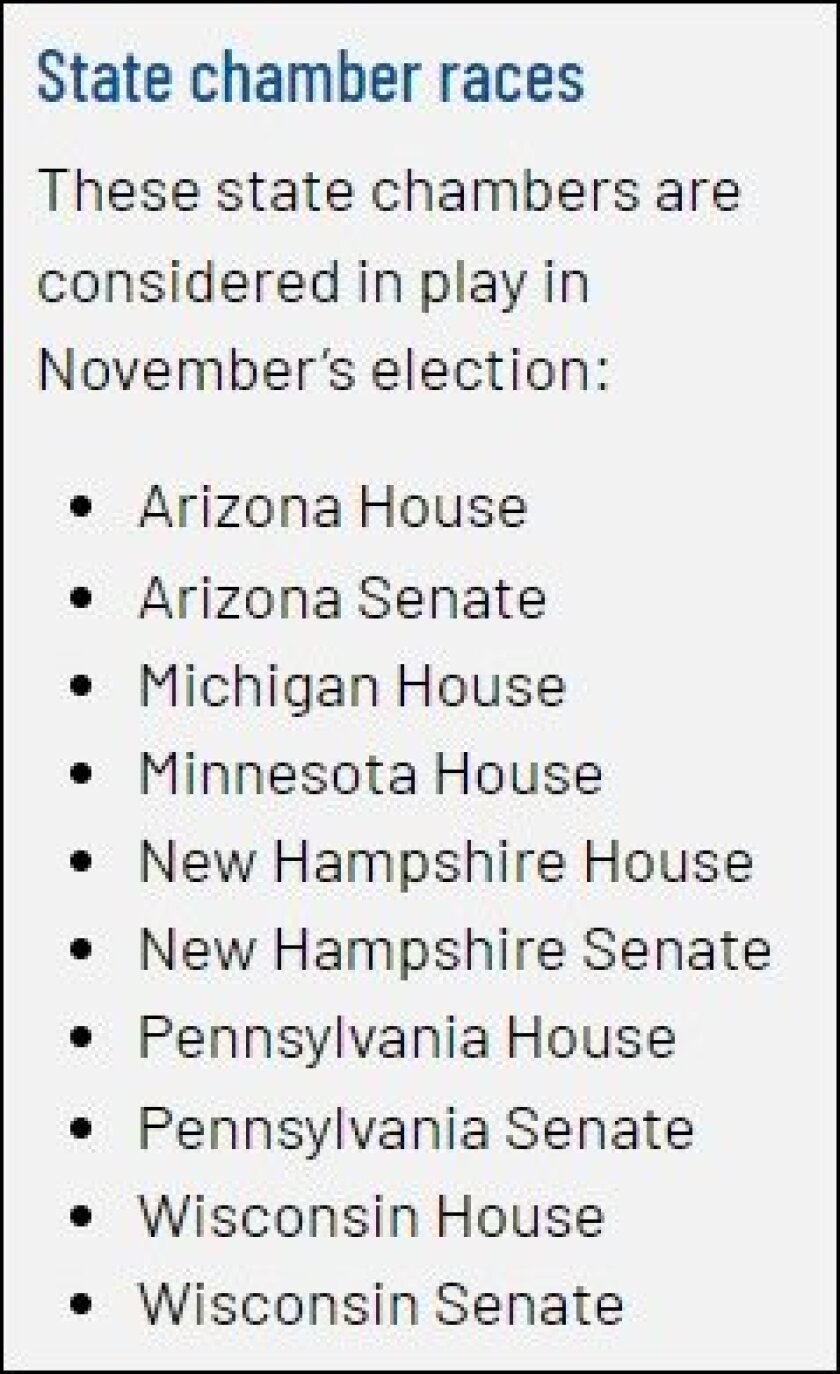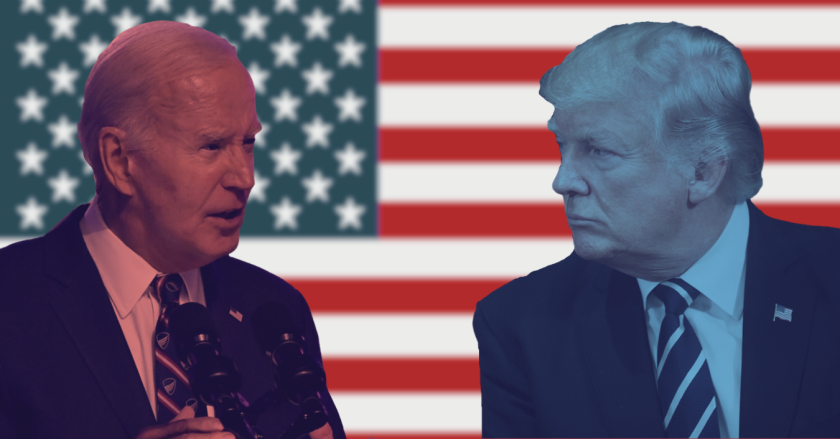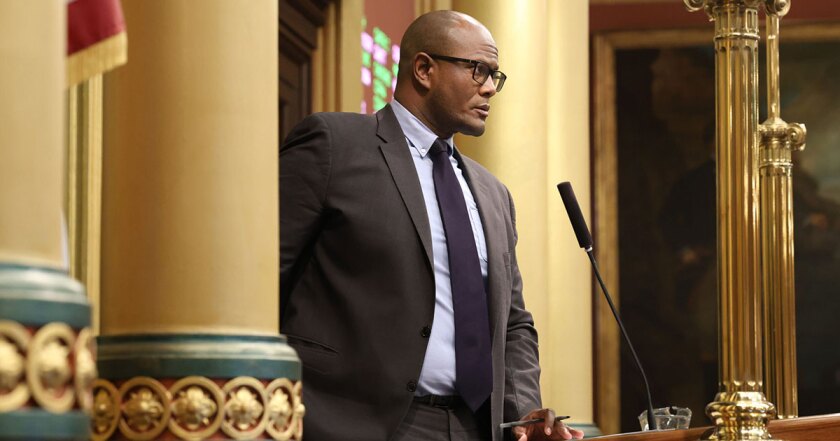While Republicans are primed to maintain their national advantage in statehouse control, several legislative chambers could flip, said Ben Williams, associate director of elections and redistricting at the National Conference of State Legislatures.
The GOP currently controls 57 legislative chambers, while Democrats control 41 (Nebraska’s unicameral legislature is nonpartisan). But, with narrow majorities in some chambers, Williams is eyeing several where a different party could take over. And divided government in more legislatures could result in more moderate policymaking on a host of controversial issues.
Only one state — Pennsylvania — currently has a split legislature. “If you are at a historic low for divided government nationwide, it’s a generally pretty safe bet to assume it’s going to go up,” Williams said. He laid out his predictions for the fall elections at the organization’s annual summit earlier this month.
He pointed to 10 competitive chambers to watch: the Arizona House, Arizona Senate, Michigan House, Minnesota House, New Hampshire House, New Hampshire Senate, Pennsylvania House, Pennsylvania Senate, Wisconsin House and the Wisconsin Senate.
Only three governor’s races — in New Hampshire, North Carolina and Washington — are characterized as competitive by the Cook Political Report, a nonpartisan newsletter that analyzes state and federal races.
Voter Concerns
Nationally, the issues of inflation, abortion, immigration and foreign policy are at the forefront for voters, Williams said. But voters often have different concerns in state elections.

Stateline.org
“Just because you see these national trends does not mean that that always reflects down to the state level,” he said. “There are local dynamics that are always at play that can make a difference.”
Republicans and Democrats are working to break apart trifectas (when a single party controls both chambers of the legislature and the governor’s office) or veto-proof majorities in several states.
That’s true in Kansas, where Republicans hold veto-proof majorities in both chambers. In the state Senate, Democrats would need to flip three seats to break the supermajority of Republicans, who currently hold 29 of the chamber’s 40 seats. Erasing a veto-proof majority would give more policymaking influence to Democratic Gov. Laura Kelly, said state Sen. Dinah Sykes, the state Senate minority leader.
If Democrats weren’t facing veto-proof majorities, Sykes said the state’s recent $2 billion tax cutprobably would have been more favorable to low-income earners. And breaking supermajorities would give the governor a better shot at getting a vote on Medicaid expansion — a long-standing Democratic priority. Kansas is among the 10 states not to have expanded the safety net program.
“I don’t think by any means it’s going to be super-progressive, but I think we can get kind of more middle of the road, which is what Kansans actually like,” she said.
Divided Government
For Republicans, winning one or both chambers in Maine would force more compromise from Democrats, said state Rep. Billy Bob Faulkingham, a Republican and the House minority leader.
With a trifecta, Maine Democrats have been able to circumvent GOP lawmakers, Faulkingham said.
Last year, Democrats passed a two-year, nearly $10 billion budget in a legislative maneuver that one Republican described as the “tyranny of the majority.” The move allowed Democrats to pass the budget with a simple majority — rather than the two-thirds majority that is usually required.
Faulkingham said gaining control of even one chamber will result in more moderate policymaking. “I think that all of a sudden, you would see people actually come to the table and negotiate, which you haven’t seen for the last six years,” he said. “If people are being honest, probably the best form of government is a divided government.”
Democratic Chambers in Play
If the elections turn out to be a red wave, with Republicans making significant gains across the board, NCSL expects the Democratic-controlled House and Senate chambers in Delaware, Maine, Nevada and Oregon to be in play.
Conversely, if Democrats do well nationally, the GOP-controlled chambers in Alaska and Georgia could be competitive.
“These states are not as red as some might believe,” Williams told Stateline in an interview. “In Alaska’s House, the Republicans have a bare majority in each chamber. And in Georgia, Democrats only need to flip around 10 seats. So, it’s not an insurmountable task.”
The Alaska legislature is governed by bipartisan majority coalitions, even though voters send more Republicans to Juneau.
State Sen. Gary Stevens, a Republican who leads the Senate majority, said he doesn’t expect November’s election results to disrupt the majority coalition, even if Democrats or more conservative Republicans pick up seats.
Alaska has the nation’s smallest state Senate, with 20 members. The 17-member Senate majority currently shares power between parties and is largely focused on more moderate issues, Stevens said. “It means we can’t deal with extreme issues — either far left or far right,” he said. “It simply means that we need to concentrate on those things in the middle that need to be done.”
After years of planning, Minnesota Democrats seized the trifecta in 2022, when they flipped the Senate and maintained control of the House and governorship.
Since then, the legislature has approved bills that guarantee the right to abortion, provide free meals for kids at school, restore voting rights to felons released from prison and make the state a “trans refuge” for children seeking gender-affirming care. Those were all signed into law by Gov. Tim Walz, who is now Vice President Kamala Harris’ running mate in the presidential election.
Those were hard-won progressive achievements, Democratic state Rep. Leigh Finke said. With only a one-seat advantage in the Senate, policy negotiations were fierce, as the majority worked to get all of their fellow Democrats on board.
“It may seem frustrating at times, but I think it really made our policy better because we knew we were going to have to fight for it,” she said.
Statelineis part of States Newsroom, a national nonprofit news organization focused on state policy. ©2024 States Newsroom.













